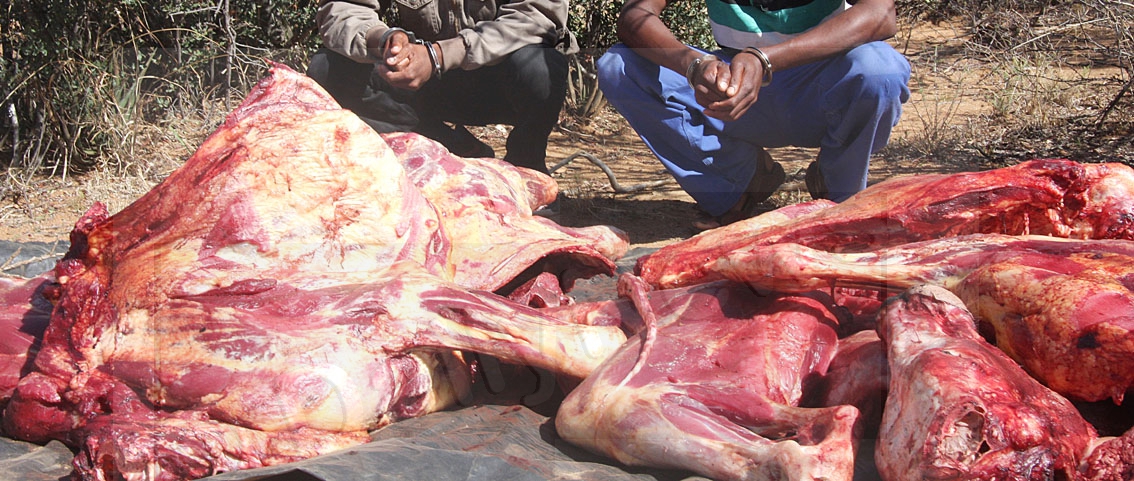Electoral Act measures guard against multiple voting
05 Dec 2022
Measures contained in the Electoral Act exist to prevent a single registered voter from voting more than once in the same polls, Minister of Defence and Security Mr Kagiso Mmusi has told Parliament.
Mr Mmusi expressed the sentiments in response to a Private Member's Bill tabled by Mahalapye West Member of Parliament (MP) Mr David Tshere, Thursday, calling for the introduction of indelible ink to be applied on voter's thumbs to indicate that they have voted during the general election day.
Mr Mmusi said in order to prevent multiple voting Section 54 of the Electoral Act provides for marking the election voters roll against the number of any such voter.
The same section also makes a mandatory requirement for the presiding officer at a polling station to mark on the back of the voter registration card the date and initials when the voter gets to cast their vote.
Mr Mmusi said ink had been removed from Botswana's general elections since it had become apparent that people had health and hygiene concerns about its application.
Presenting the Electoral Amendment Bill, Mr Tshere said ink had been applied on voters from the first 1965 pre-independence polls until the 1999 general election to provide evidence that a voter had cast their vote and prevent the possibility of a person voting again in the same poll.
In 2003, the then Minister of Presidential Affairs and Public Administration as well as Molepolole MP Mr Daniel Kwelagobe presented an amendment to the Electoral Act to cancel the application of ink to voters, Mr Tshere said.
Reading a copy of the parliamentary Hansard record from Wednesday, December 10 2003, Mr Tshere quoted former Minister Kwelagobe explaining the need to dispense ink as some people at the time believed it could expose them to HIV/AIDS infection.
Although there was no scientific evidence to that effect, Mr Tshere said since Botswana in the early 2000s was dealing with the burden of the HIV/AIDS epidemic and associated stigma, one could understand gross misconceptions that could lead to such myths gaining ground among the population then.
But two decades later, with the benefit of hindsight, Parliament was now in a position to return the use of ink on polling day to continue the prevention of dual voting, since the legitimacy of the electoral process exceeds any previous unfounded fears, he said.
He also argued that the "one man, one vote" principle was a cornerstone of electoral democracy and legislators needed to promote it.
Mr Tshere proposed that other measures that could be used to apply the ink include spraying and the use of brushes or marking a pen if there were people who might have further concerns about dipping.
Supporting the Bill, Leader of the Opposition, Mr Dithapelo Keorapetse said this would be one of the measures to ensure fairness that was critical to democratic contestation.
Selebi Phikwe legislator Mr Keorapetse said over 30 countries still apply ink, and Botswana had used it in eight general elections spanning a few decades.
He said no empirical evidence had been presented of anyone over that period in Botswana or elsewhere where someone became ill as a consequence of the application of ink.
Mr Keorapetse said concern about some names appearing more than once in the voter's roll has been raised as recently as the 2019 general elections.
Nata-Gweta MP, Mr Paulson Majaga said the re-introduction of ink was unnecessary as measures that already exist to curb dual voting were sufficient such as the barcode in the voting card.
He said national elections were also occasioned by international observers from credible multilateral institutions such as the European Union (EU) and the Southern African Development Community (SADC) which ensures the credibility of the process. Parliament adjourned on Thursday while still debating the bill and a determination will be made after the debate is exhausted.BOPA
Source : BOPA
Author : Pako Lebanna
Location : GABORONE
Event : Parliament
Date : 05 Dec 2022



